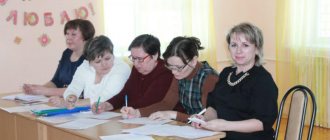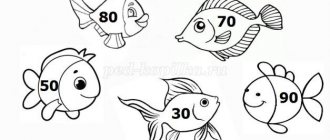Lesson analysis - systematic and structural
Analysis of a lesson on pedagogical communication
- Brief general description of the lesson: goals, objectives, stages of the lesson, means, methodological techniques and forms of teaching in the lesson.
- Style of pedagogical communication; in the center is the teacher, in the center is the student as an individual, the openness and hiddenness of the teacher’s managerial work.
- Correspondence of pedagogical communication to the goals, stages, forms, means, methods of teaching: monologue, dialogic or group communication, communication as information, explanation, evaluation or identification and proof of something, the relationship between problematic and awareness, appeal, clarity, specificity, purposefulness of communication, verbal and non-verbal communication; various types of speech activities (writing, reading, listening, speaking)
- Direct and indirect educational impact through communication.
- Students' speech culture and requirements for it. Initiative and mental activity of students and its expression in their speech.
- Teacher's speech culture. The teacher as a benevolent speech partner. The relationship between pragmatism, logic and emotionality in the teacher’s verbal and non-verbal behavior.
- The comparative nature of the speech of students and teachers and its rationale.
- External comfort of communication between teacher and students in the classroom.
Lesson analysis and self-analysis form
1 - Brief (evaluative) analysis - this is a general assessment of the teaching and educational function of the lesson, characterizing the solution of educational, educational and developmental tasks and assessing their implementation;
2 - Structural (stage-by-stage) analysis is the identification and assessment of the dominant structures (elements) of the lesson, their feasibility, ensuring the development of students’ cognitive abilities;
3 - System analysis is the consideration of a lesson as a single system from the point of view of solving the main didactic task and simultaneously solving the developmental tasks of the lesson, ensuring the formation of knowledge, skills and abilities of students, their mastery of teaching methods;
4 - Complete - this is a system of aspect analyses, including assessment of the implementation of lesson objectives, the content and types of educational activities of students according to such characteristics as the levels of students’ assimilation of knowledge and methods of mental activity, the development of students, the implementation of didactic principles and the effectiveness of the lesson;
5 - Structural-temporal analysis is an assessment of the use of lesson time for each of its stages;
6- Combined analysis is an assessment (simultaneous) of the main didactic goal of the lesson and structural elements;
7 - Psychological analysis is the study of the fulfillment of psychological requirements for a lesson (ensuring the cognitive activity of students of a developmental type).
8 - Didactic analysis is an analysis of the main didactic categories (implementation of the principles of didactics, selection of methods, techniques and means of teaching and skills of schoolchildren, didactic processing of the educational material of the lesson, pedagogical guidance of independent cognitive activity of students, etc.);
9 - Aspect analysis is a consideration, detailed and comprehensive study and assessment from a certain angle of view of any aspect or individual activity of students. Examples of lesson aspects:
- the teacher’s implementation of the triune task of the lesson;
- use of developmental methods in the classroom;
- studying ways to enhance students' cognitive activity;
- ways to develop cognitive interest;
- formation of general educational skills in schoolchildren;
- checking and assessing students' knowledge of learning;
- organization of problem-based learning in the classroom, etc.
10 - Complex analysis is a simultaneous analysis of the didactic, psychological and other foundations of a lesson (most often a lesson system).
Lesson Components
The first component of a lesson as a system is its main didactic goal (MDG), which is analyzed and evaluated approximately from the following positions: the degree of compliance of the diagnostic goal of the lesson with the requirements of the program; the optimal combination of educational, developmental and educational objectives of the lesson; validity and focus on high final results; bringing the objectives of the lesson to awareness and acceptance by students; the degree of achievement of the given GDC by the end of the lesson.
The second component of the lesson as a system is the teacher (the subject of the activity). The personality of the teacher in the lesson is analyzed and assessed approximately according to the following manifestations:
- general erudition and professional competence;
- level of pedagogical technology;
- the degree of democracy in communication with students during the lesson (creating psychological comfort during the lesson and ensuring a humane attitude towards the student)
The third component of the lesson as systems is students, who are the subject and object of the activity. Their actions are analyzed approximately according to the following indicators:
- the level of general educational and special skills (how they are developed and how they are improved in the lesson);
- students’ readiness to set and accept a learning task;
- the level of cognitive activity of students during your lesson, which in general allows us to talk about them as active subjects of activity;
- Availability and skill of teamwork (pair, group).
The fourth component of the lesson as a system is the content of the activities of the teacher and students. In general, this is information circulating between them. The basis for analysis and evaluation is approximately the following:
- the content of the activities of the teacher and students, the degree of novelty of the educational information discussed in this lesson;
- updating students’ previous knowledge, posing an educational problem; humanization of knowledge (historical excursion, focus on using knowledge in life, establishing interdisciplinary connections...).
The fifth component of the lesson (system-forming) is methods of activity that include:
- organization of students’ independent work (volume, nature, types, sequence of work),
- the presence of an optimal balance between students’ independent work and collective work;
- creating situations of success and providing maximum assistance in completing individual tasks;
- implementation of an individual and differential approach in the lesson;
- methods for developing cognitive activity and independence of students.
Lesson Analysis Objectives:
- Control over the quality of teaching, the quality of knowledge, skills and abilities of students.
- Monitoring the state of the educational process.
- Instructing the teacher.
- Help in mastering higher teaching skills.
- Finding out the reasons for the teacher’s successes and failures, overcoming shortcomings in his work.
- Identification of the teacher’s work system, etc.



